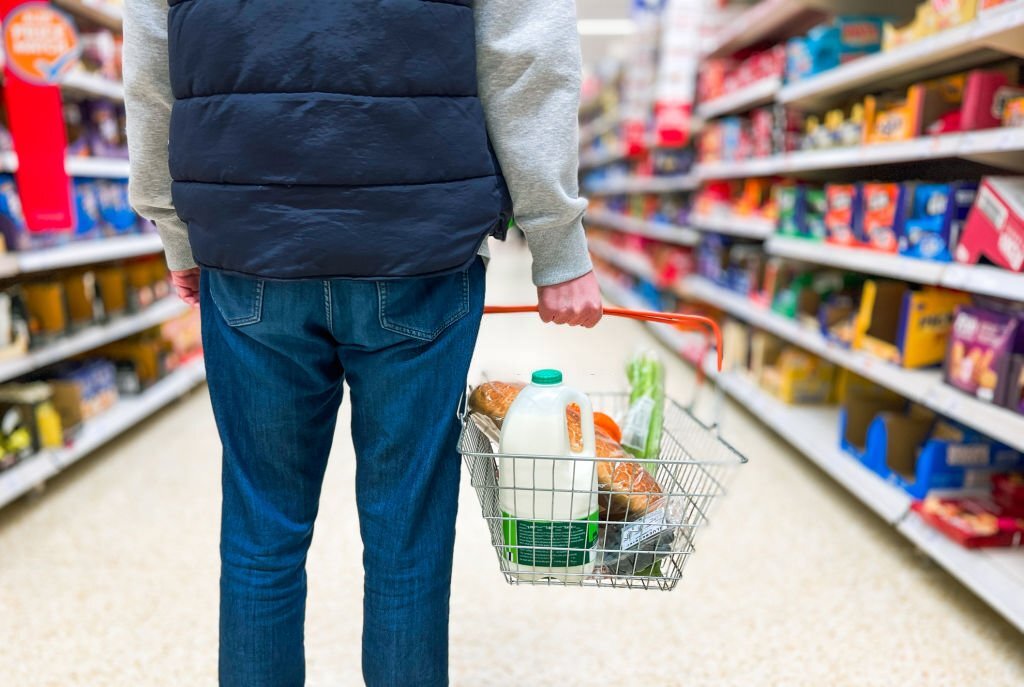The UK’s annual inflation rate is rising rapidly. The research results show that British people must spend more to buy necessities from stores this year. Kantar’s report shows that the increase in food prices in the UK is at its highest level since 2008, forcing families to spend $1,000 more this year to buy necessities, and they must change their shopping habits to save money. The critical question is how much will the UK’s annual Inflation Rate increase at this year’s end? And what are the effects of increasing the UK’s yearly Inflation Rate?
New UK food inflation record
The increase in the UK’s annual Inflation Rate has led to a sharp rise in food prices. Kantar, which works in retail activities, announced that in the four weeks of January, food price inflation in the UK set a new record. In such a way, the price of all essential items, from milk and butter to cheese, eggs, and even dog food, has registered a significant increase. The UK’s annual inflation rate has increased the price of almost everything.
An increase in the price of basic food and drink items
The UK’s annual inflation rate has increased in a situation where food and drink prices have been continuously growing. The Office for National Statistics (ONS) reported that food and drink prices in the country reached a 45-year high in December, rising 16.8% year-on-year. According to this report, the increase in the prices was caused by the jump in the price of essential items such as bread, milk and cheese, which has put the most pressure on low-income households.
The highest inflation figure in the British tourism sector
The increase in the UK’s annual inflation rate has also affected other sectors of the UK economy. Prices in restaurants and hotels also reportedly rose as tourism companies were forced to pass on the pressure of soaring costs to customers as inflation in the sector hit 11.3 per cent in December, the highest figure in over 31 years. Overall, UK inflation fell for the second consecutive month in December 2022 but remains at one of its highest levels in 40 years.
An increase in the bank interest rate to curb inflation
The Bank of England (BoE) has sharply increased bank interest rates to curb double-digit inflation. The watchdog said the country had entered its most prolonged economic recession. Meanwhile, Treasury Secretary Jeremy Hunt said after the release of the ONS data that the government plans to reduce inflation this year.
Reducing unnecessary costs for cost management
British consumers plan to cut back on non-essential spending this year amid concerns about a growing cost of living crisis, according to a survey by consultancy KPMG. Nearly two-thirds of the 3,000 consumers surveyed said they were preparing to cut back on food, vacations and other non-essentials due to the highest inflation in four decades.
The British worry about the increase in inflation
According to this consultancy, British families are more concerned about the price of essential items such as food, energy, fuel and mortgage and rental costs. A third of consumers in this country plan to buy fewer items in 2023 and resort more to self-branded products at lower prices. According to the report, the most common topics for consumers to save on discretionary spending were eating out (46%), followed by clothing (42%) and convenience foods (42%).
British turn to cheaper retail
“Consumers are increasingly changing how they shop to save money – including switching to cheaper retailers, buying more value or promotional produce, and swapping eating out for meals in,” said Linda Ellett, UK head of consumer markets, retail and leisure at KPMG. The impact of the cost of the living crisis on vulnerable groups among consumers was disproportionately underscored. The survey found that one in 10 UK adults have no savings. Of those with protection, 43% said they used it to help cover essential expenses. This figure reaches 80% of low-income households.
An increase in the consumer price index in the UK
In its latest report, the ONS announced that the consumer price index has increased by 10.7% in the 12 months ending in November 2022. According to the ONS report published in the three months from August to October, the country’s economic efficiency decreased by 0.3 per cent. However, gross domestic product (GDP) rose 0.5 per cent in October, following a negative 0.6 per cent economic growth the previous month. There was a day off in September due to Queen Elizabeth’s funeral, which harmed economic output.
Strikes in the UK for higher wages
The UK is currently facing a massive crisis of strikes, and different parts of the country have faced unprecedented disruption due to the strike employees. Based on this, official statistics in the UK show that the number of working days in October in which employees went on strike has reached an unprecedented record in the last 11 years. Accordingly, the Office for National Statistics announced that 417,000 working days in October this year were closed due to the strike, which means that 417,000 people went on strike this month, unprecedented since November 2011.
The continuous trend of increasing prices
At the end of last year, we saw a relative decrease in the inflation of the prices of goods in stores, but this issue could have been more continuous. The inflation rate in January 2023 was even higher than in December 2022. In general, in 2022 and recent months, the crisis of increasing the cost of living in the UK is getting worse. Although the growth of the overall inflation rate in the UK has stopped, the trend of rising prices in this country continues.

